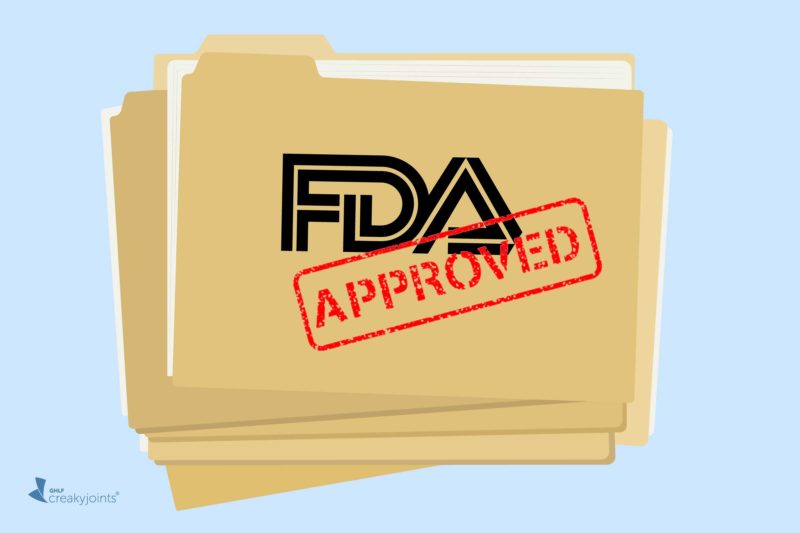Treatment options for many rheumatic diseases have advanced significantly in recent years, but lupus patients have been somewhat left behind. In the past 50 years, only one new lupus drug, belimumab (Benlysta), has been approved — and that was in 2011. Now, about a decade later, people with systemic lupus erythematosus (SLE), the most common type of lupus, have a new option.
On July 30, 2021, the U.S. Food and Drug Administration (FDA) approved anifrolumab (Saphnelo) for moderate to severe SLE, making it the first-ever type 1 interferon receptor antagonist to hit the market.
Anifrolumab works by binding to this receptor and blocking the activity of type 1 interferon, a protein that is often elevated in people with lupus and associated with higher disease activity. Patients who use it will take it by infusion once every four weeks.
This drug’s approval follows three randomized, double-blinded, placebo-controlled clinical trials in which patients were randomly assigned to receive various doses of anifrolumab or a placebo infusion.
One of these trials, called TULIP-1, did not meet its primary goal, as it failed to prove that more patients taking the drug would improve on the SLE Responder Index 4 (SRI-4). The next major trial, TULIP-2, used a different disease activity assessment called the BILAG-Based Composite Lupus Assessment (BICLA) — and this time researchers found that 48 percent of patients who got anifrolumab improved compared to 32 percent of those who got a placebo.
When evaluating findings from all these trials together, “there are far more successful outcomes than unsuccessful outcomes,” Richard Furie, MD, Chief of the Division of Rheumatology at Northwell Health and a principal investigator in this research, told Healio Rheumatology.
Possible side effects of anifrolumab include an increased risk of upper respiratory tract infections, cough, and infusion-related reactions. People who participated in the clinical trials also had an above-average risk of developing herpes zoster (shingles).
The FDA has directed the drug’s manufacturer, AstaZeneca, to conduct studies on the safety and impact of anifrolumab in pregnant and breastfeeding women to gain more information about whether it is safe for pregnant women and their babies to use this medication.
Track Your Medications with ArthritisPower
Join CreakyJoints’ patient-centered research registry and log your medications to track side effects and impact on disease activity. Sign up.
Bui A. Anifrolumab. StatPearls. July 4, 2021. https://www.ncbi.nlm.nih.gov/books/NBK555979/.
Kemp A. Saphnelo (anifrolumab) approved in the US for moderate to severe systemic lupus erythematosus. AstraZeneca Press Release. August 2, 2021. https://www.astrazeneca.com/media-centre/press-releases/2021/saphnelo-approved-in-the-us-for-sle.html.
Liu A. AstraZeneca nabs FDA nod to challenge GSK’s Benlysta with first-in-class lupus drug Saphnelo. Fierce Pharma. August 2, 2021. https://www.fiercepharma.com/pharma/astrazeneca-nabs-fda-nod-to-challenge-gsk-s-benlysta-first-class-lupus-drug-saphnelo.
Stewart J. Saphnelo FDA Approval History. Drugs.com. August 3, 2021. https://www.drugs.com/history/saphnelo.html.
Stott R. FDA approves Saphnelo, first new lupus treatment since 2011. Healio Rheumatology. August 2, 2021. https://www.healio.com/news/rheumatology/20210802/fda-approves-saphnelo-first-new-lupus-treatment-since-2011.






